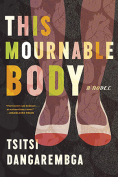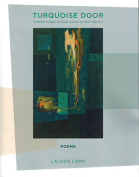Vic City Express by Yannis Tsirbas
 Montreal. Baraka Books. 2018. 96 pages.
Montreal. Baraka Books. 2018. 96 pages.
Yannis Tsirbas’s Vic City Express, which was previously shortlisted for the Greek National Literature Award in 2013, is a small book that throws a very large shadow.
The novella begins with a simple enough premise: one passenger on a train begins an interaction with another, a nationalist, who then proceeds to outline a reactionary history of his neighborhood. From there we’re led through a series of interrelated stories that together form a complex mosaic of hardships and transformations. In “Gotcha,” a troubled youth gets a tattoo, which provokes beatings from junta-era police, feeding into his own fascinations with violence and a desire for more. In “Happiness Is a Sandwich,” a starving man finds a 5,000 drachmas note (something like 18 US dollars), but no one will accept his money. A final solution, inspired by tactics used against Native Americans as well as various pest-control solutions, is proposed in horrific, dehumanizing apathy in “Another Night.” Meanwhile, the disinterested passenger cycles through emails on his mobile phone, distracted by spam and special offers, as the nationalist continues on.
Throughout these several “chapters,” which are structured in a way that’s somewhat reminiscent of Italo Calvino’s Invisible Cities, another book that’s a conversation in vignettes, the nationalist challenges the disinterested passenger with an assortment of economic, cultural, and authoritarian rationalizations for his beliefs. At the core of this pitch is Victoria, or Vic City, a neighborhood in Athens with disappearing boundaries and rapidly shifting demographics, and where the nationalist grew up. Even so, the book serves to inoculate the reader from such nativist appeal by identifying and engaging its various lures.
While it can be a demanding read at times, Vic City Express is thoughtfully executed and occasionally melancholy, and readers familiar with Athenian culture may find unexpected humor in some of its passages. The translation by Fred A. Reed is more than capable, shifting styles and tones with ease while keeping its regional intricacies intact. Tsirbas has written a timely book here, one that’s also a convincing, localized tour of creeping fascism in Greece and the alarming conditions that are allowing it to take root.
Michael Kazepis
Portland, Oregon












































